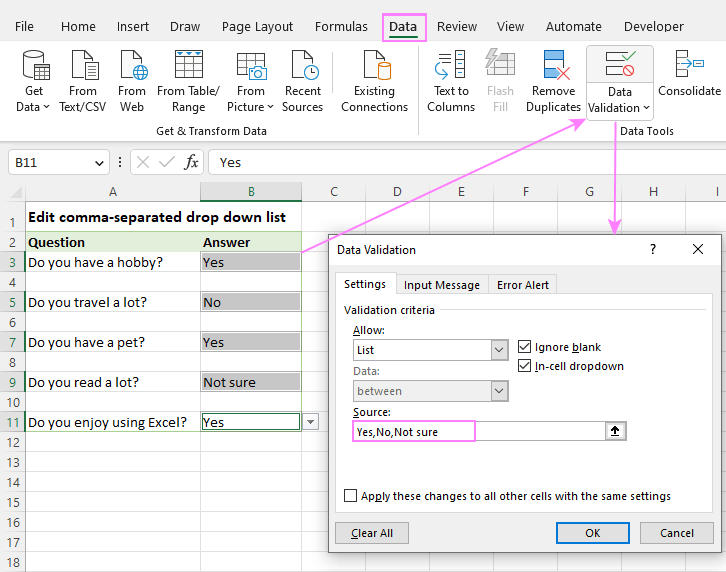
Effective Ways to Increase Hemoglobin Levels for Better Health in 2025
Maintaining optimal hemoglobin levels is crucial for overall health, playing a significant role in oxygen transport and energy levels. If you're looking to **increase hemoglobin levels**, this guide will provide you with effective strategies, including dietary adjustments and lifestyle changes, tailored for 2025.
Understanding Hemoglobin and Its Importance
Hemoglobin is a protein found in red blood cells responsible for transporting oxygen throughout the body. Low hemoglobin levels can lead to anemia, which may cause fatigue, weakness, and other health complications. It’s essential to understand factors that influence hemoglobin synthesis, such as nutrient intake and lifestyle choices. Incorporating **hemoglobin-rich foods** is one of the most effective ways to boost these levels in your bloodstream, ensuring your body receives the oxygen it needs to function properly. Effective meal planning around these foods can significantly impact health and energy levels.
Key Nutrients to Increase Hemoglobin
Several key nutrients play a vital role in increasing hemoglobin levels. **Iron**, particularly in the form of heme iron from animal sources like **red meat**, and non-heme iron from plant sources such as **beans and legumes** and fortified cereals, is crucial for hemoglobin production. **Vitamin C sources** can also enhance iron absorption, making foods like broccoli, spinach, and **pomegranate juice** beneficial additions to your diet. Additionally, maintaining a **proper nutrient balance** ensures your body can store and utilize iron effectively.
The Role of Lifestyle Changes
Incorporating **lifestyle changes** alongside dietary adjustments can help you maintain optimal hemoglobin levels. Engaging in regular physical activity can stimulate the production of red blood cells and improve overall blood health. Routine health check-ups and **consulting with healthcare providers** are also recommended to monitor symptoms and adjust dietary habits as needed. Furthermore, reducing intake of stimulants like tea and coffee can help minimize their impact on iron absorption.
Practical Tips for Improving Hemoglobin Levels
To effectively increase hemoglobin levels, focus on meal preparation techniques that retain nutrients and promote optimal absorption. For instance, **cooking in cast iron** pans can increase iron content in meals, while pairing iron-rich foods with **vitamin C rich** foods can enhance absorption. Other effective strategies include choosing **whole grains** over refined grains and making use of **nutritional advice** that emphasizes meals loaded with **leafy greens** such as **spinach** and **broccoli**. Experimenting with **cooking methods to retain nutrients**, like steaming rather than boiling, can also contribute significantly to nutrition quality.
Incorporating Foods Rich in Iron
When it comes to dietary strategies for hemoglobin enhancement, food choices are paramount. Incorporating iron-rich foods into your diet is a fundamental step. Ideally, your meals should include a balance of both heme iron and non-heme iron sources to optimize iron absorption. Heme iron, found in **red meat**, poultry, and **fish and seafood**, is more readily absorbed by the body compared to non-heme iron, which is present in plant foods like lentils, beans, and **dried fruits** such as apricots and raisins.
Best Sources of Heme and Non-Heme Iron
Understanding the difference between **sources of heme iron** and **sources of non-heme iron** will aid in formulating a balanced diet. Heme iron sources include organ meats, red meat, poultry, and fish. On the other hand, **beans and legumes**, fortified cereals, nuts and seeds, and leafy greens are rich in non-heme iron. Including a variety of these foods in your diet can help enhance your hemoglobin levels effectively.
Hydration and Hemoglobin Levels
Proper hydration is another critical but often overlooked aspect of maintaining healthy hemoglobin levels. Dehydration can lead to decreased blood volume, making it harder for the body to produce sufficient red blood cells. Incorporating adequate amounts of liquids into your diet and maintaining **optimal hydration** can help mitigate this issue. Be sure to balance your fluid intake, particularly when exercising or in hot weather, to enhance circulation and facilitate nutrient absorption.
Dietary Adjustments for Health Conditions
For those managing chronic conditions or **dietary restrictions**, creating a tailored approach to include **healthy diet** strategies alongside dietary adjustments for hemoglobin improvement is essential. This might involve **consulting with a dietitian** or healthcare provider to address specific nutritional deficiencies or needs. Additionally, understanding how conditions like **inflammation impact** nutrient absorption can inform better dietary choices.
Preventing Anemia with Effective Dietary Strategies
Preventing anemia involves proactive management of dietary habits and awareness of potential nutrient deficiencies. Adequate intake of **essential vitamins** and minerals, particularly iron, Vitamin B12, and folic acid, is vital for red blood cell production and overall blood health. Foods enriched with these nutrients include fortified cereals and **nuts and seeds**. **Folic acid importance** cannot be overstated; sources include lentils, beans, and leafy greens.
Mealtime and Food Pairing Strategies
Certain food pairings can enhance iron absorption and optimize hemoglobin production. For instance, combining a source of non-heme iron like **quinoa** with **vitamin C-rich** foods can substantially improve uptake. Adjusting your meals around these strategies not only helps increase your hemoglobin levels but also improves overall nutrient intake. This dietary planning, through effective meal preparation, will support your efforts in preventing potential deficiencies.
Supplementation for Enhanced Health
In cases where dietary changes alone are insufficient, exploring options for iron supplements and other health supplements may be beneficial as part of your overall strategy to boost hemoglobin levels. However, it’s essential to consult with healthcare providers regarding the type and duration of supplementation. Regular **routine blood tests** can help track iron levels, ensuring you adjust your intake based on your body's needs. The use of **herbal supplements for hemoglobin** can also be explored as part of a holistic approach to nutrition.
Learning and Adapting Dietary Habits
As lifestyles evolve, so should dietary habits. Educating oneself about **nutrition science** and embracing dietary shifts that support heme and non-heme iron intake is essential for maintaining robust hemoglobin levels. This could involve adapting meals to integrate **functional foods** such as beets, known for their benefits in boosting blood health. Keeping abreast of the latest **nutrition trends** and understanding personalized nutrition can empower individuals to make informed choices about their health.
Conclusion
In summary, increasing hemoglobin levels through diet requires a concerted effort in various areas - from understanding nutrient roles to effective meal planning. By incorporating **iron-rich foods**, maintaining proper hydration, and utilizing thoughtful dietary strategies, you can support your body's health significantly. Always consult healthcare providers for personal guidance on boosting hemoglobin levels effectively.
FAQ
1. What are the symptoms of anemia?
Symptoms of anemia can include fatigue, weakness, dizziness, pale skin, shortness of breath, and cold hands and feet. It's crucial to consult with healthcare providers if you suspect anemia to ensure proper diagnosis and treatment.
2. How can I naturally boost hemoglobin levels?
You can naturally boost hemoglobin levels by consuming **hemoglobin-rich foods** like red meat, poultry, and spinach. Additionally, incorporating **Foods to eat for anemia** that are rich in iron and Vitamin C is essential for enhancing iron absorption.
3. Are there vegan options to increase hemoglobin?
Yes, there are numerous vegan options to increase hemoglobin levels. Foods like lentils, beans, fortified cereals, and leafy greens such as kale and **spinach** are excellent sources. Pairing these with Vitamin C sources can enhance absorption.
4. Can hydration affect hemoglobin levels?
Absolutely! Proper hydration can enhance circulation and improve absorption of vital nutrients, ultimately aiding in the production and maintenance of hemoglobin levels. Stay hydrated to support overall blood health.
5. Should I take iron supplements?
Iron supplements can be beneficial, particularly for individuals with diagnosed anemia or dietary restrictions. However, it’s essential to consult with a healthcare provider before starting any supplementation to avoid excess iron, which can be harmful.
6. What role does Vitamin B12 play in increasing hemoglobin?
Vitamin B12 is crucial for red blood cell production. Low levels of this vitamin can lead to anemia, so including sources like fortified cereals and certain dairy products can support hemoglobin levels.
7. How often should I check my hemoglobin levels?
Routine blood tests are generally recommended, especially for those at risk of anemia. Individuals with dietary restrictions or symptoms should consult healthcare providers to determine the appropriate frequency for testing hemoglobin levels.

